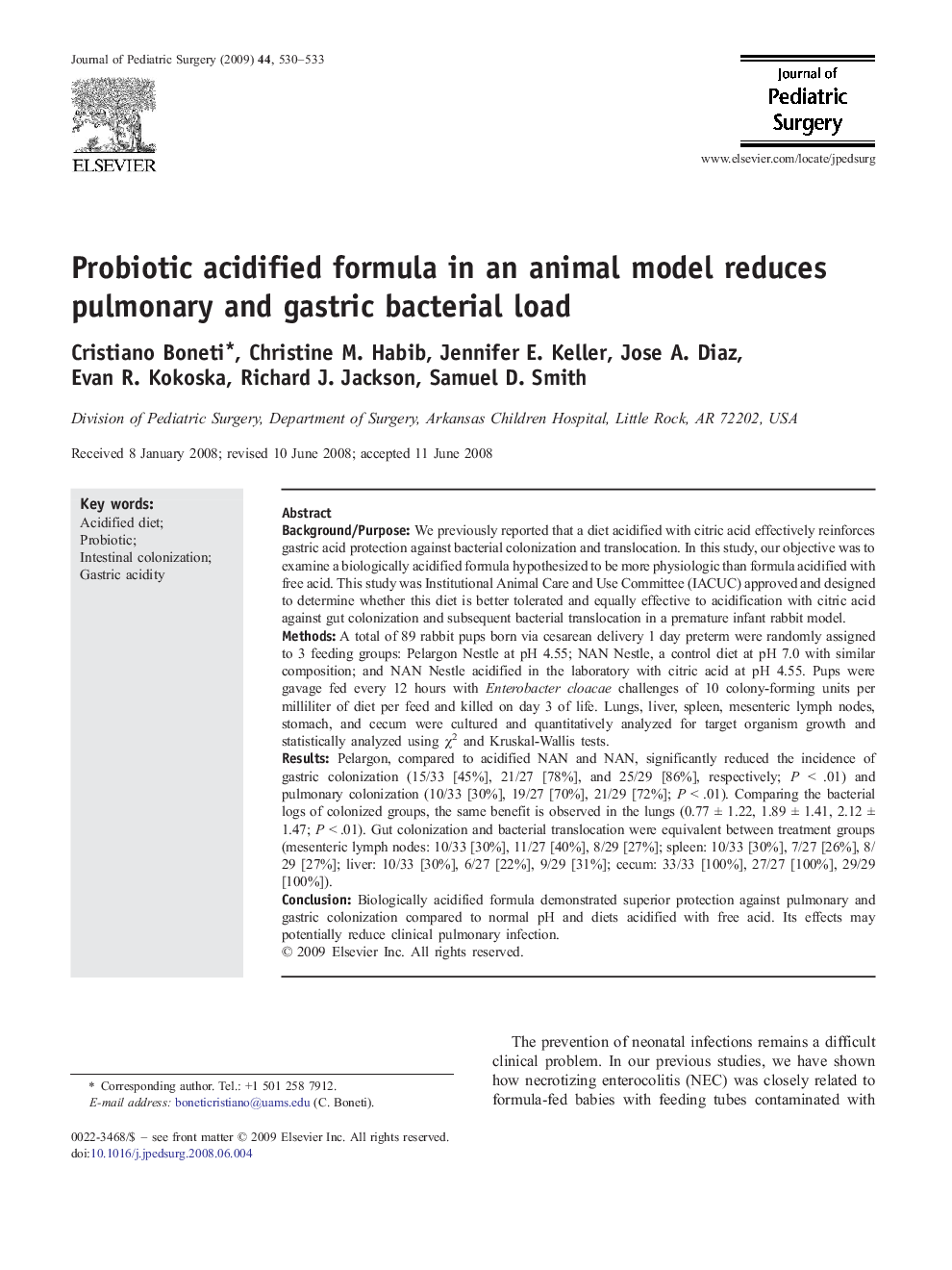| Article ID | Journal | Published Year | Pages | File Type |
|---|---|---|---|---|
| 4158240 | Journal of Pediatric Surgery | 2009 | 4 Pages |
Background/PurposeWe previously reported that a diet acidified with citric acid effectively reinforces gastric acid protection against bacterial colonization and translocation. In this study, our objective was to examine a biologically acidified formula hypothesized to be more physiologic than formula acidified with free acid. This study was Institutional Animal Care and Use Committee (IACUC) approved and designed to determine whether this diet is better tolerated and equally effective to acidification with citric acid against gut colonization and subsequent bacterial translocation in a premature infant rabbit model.MethodsA total of 89 rabbit pups born via cesarean delivery 1 day preterm were randomly assigned to 3 feeding groups: Pelargon Nestle at pH 4.55; NAN Nestle, a control diet at pH 7.0 with similar composition; and NAN Nestle acidified in the laboratory with citric acid at pH 4.55. Pups were gavage fed every 12 hours with Enterobacter cloacae challenges of 10 colony-forming units per milliliter of diet per feed and killed on day 3 of life. Lungs, liver, spleen, mesenteric lymph nodes, stomach, and cecum were cultured and quantitatively analyzed for target organism growth and statistically analyzed using χ2 and Kruskal-Wallis tests.ResultsPelargon, compared to acidified NAN and NAN, significantly reduced the incidence of gastric colonization (15/33 [45%], 21/27 [78%], and 25/29 [86%], respectively; P < .01) and pulmonary colonization (10/33 [30%], 19/27 [70%], 21/29 [72%]; P < .01). Comparing the bacterial logs of colonized groups, the same benefit is observed in the lungs (0.77 ± 1.22, 1.89 ± 1.41, 2.12 ± 1.47; P < .01). Gut colonization and bacterial translocation were equivalent between treatment groups (mesenteric lymph nodes: 10/33 [30%], 11/27 [40%], 8/29 [27%]; spleen: 10/33 [30%], 7/27 [26%], 8/29 [27%]; liver: 10/33 [30%], 6/27 [22%], 9/29 [31%]; cecum: 33/33 [100%], 27/27 [100%], 29/29 [100%]).ConclusionBiologically acidified formula demonstrated superior protection against pulmonary and gastric colonization compared to normal pH and diets acidified with free acid. Its effects may potentially reduce clinical pulmonary infection.
